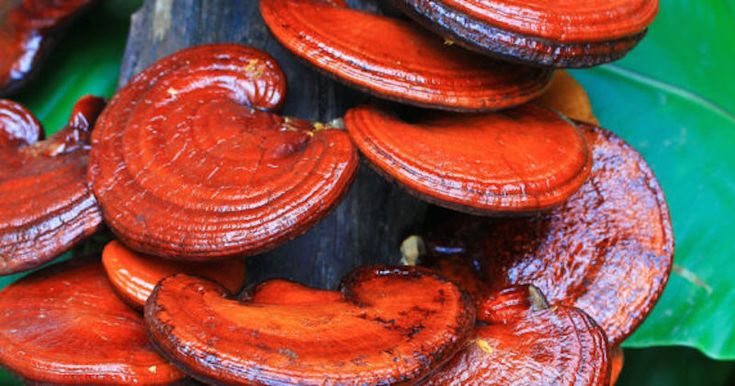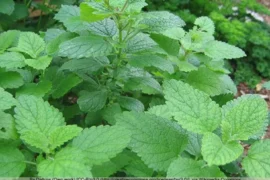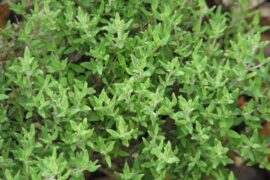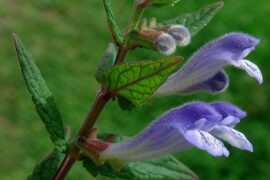-
Table of Contents
ToggleOverview
Reishi (Ganoderma lucidum), commonly known as the “mushroom of immortality,” is a medicinal fungus used in traditional Chinese medicine (TCM) and other East Asian healing practices. Known for its adaptogenic properties, reishi has been historically used to support overall health, boost immunity, reduce stress, and promote longevity.
What Is Reishi Mushroom?
Reishi is a woody, bitter mushroom that grows on decaying wood, primarily found in Asia. Due to its hard and woody texture, it is not suitable for consumption in its fresh form. Instead, it is usually processed into powders, capsules, or teas. Its deep red or brown color, combined with its tough texture, sets it apart from other mushrooms. This fungus is valued in traditional herbal medicine due to bioactive compounds such as polysaccharides, peptidoglycans, triterpenoids, polypeptides, sterols, lucidenic acids, and ganoderic acids present in it.
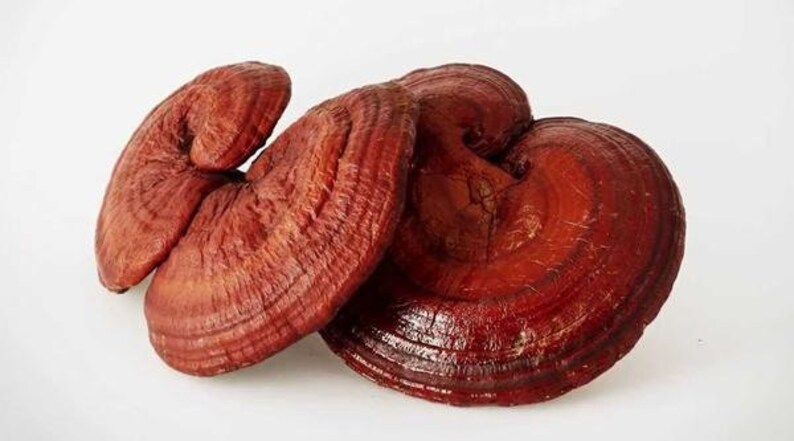 Reishi Distribution
Reishi Distribution
Reishi (Ganoderma lucidum) is predominantly found in East Asia, but its presence extends to several regions globally. Below is a summary of its distribution across different geographical areas:
1. East Asia (Native Region)
China: The mushroom has a long-standing history of use in traditional Chinese herbal medicine. It naturally grows on the trunks of deciduous trees, especially oak, maple, and elm, and is extensively cultivated.
Japan: In Japan, it is referred to as “Reishi” or “Manetake” and grows in forests on various hardwood species. This fungus is valued in Japanese traditional medicine (Kampo).
Korea: Reishi mushrooms grow in Korea’s forests, typically found on the trunks of dead or dying trees.
- Taiwan: Taiwan is another significant location where reishi mushrooms are grown and used for health purposes.
2. Southeast Asia
Countries such as Vietnam, Thailand, Malaysia, and Indonesia also have reishi mushrooms growing in their forests, particularly in subtropical and tropical regions.
3. North America
United States: While Reishi is increasingly cultivated in the United States, it is not native to most regions. It can be seen growing on trees in some regions, especially in the Pacific Northwest. Additionally, there are species related to Ganoderma lucidum (like Ganoderma tsugae) that grow in the region, though they may not be commonly used for medicinal purposes compared to the Asian varieties.
Canada: Similar to the United States, reishi is both cultivated and can be found in the wild in Canada, but it is less prevalent than in its original habitats.
4. Europe
Reishi mushrooms are not indigenous to Europe; however, they are cultivated for their medicinal and nutritional properties. While some related species, such as Ganoderma applanatum, are found in European forests, Ganoderma lucidum is specifically cultivated for the supplement industry.
5. Australia
There has been growing interest in cultivating reishi mushrooms, but it is not found naturally in Australian woodlands.
Growing Conditions
Forest Habitat: Reishi thrives in humid, temperate, and subtropical environments, primarily growing on decaying hardwoods, although it can sometimes be found on softwoods in certain circumstances.
Cultivation: While it naturally grows on trees in its natural habitat, reishi is extensively cultivated on logs, sawdust, and other growing mediums in controlled environments to satisfy the demand for medicinal use.
Commercial Distribution
Reishi has gained widespread commercial distribution, particularly in the form of dried mushrooms, powders, teas, and supplements. This has led to its availability in health food stores and online marketplaces worldwide, regardless of the mushroom’s original habitats.
In summary, while reishi may be indigenous to East Asia, it has been introduced to many other parts of the world due to cultivation. Its health benefits have made it a globally recognized supplement.
Health Benefits and Uses of Reishi:
1. Immune System Support
Research indicates that reishi may help regulate the immune system. It contains bioactive compounds that have been demonstrated to improve immune system function such as polysaccharides (including beta-glucans), triterpenoids, and peptidoglycans. These compounds help stimulate the activity of white blood cells, including macrophages and natural killer (NK) cells, which are essential for fighting off infections and maintaining immune surveillance.
A 2023 study revealed that dietary supplementation of reishi could improve immune response in Rohu infected with Aeromonas veronii. Individuals looking to support their immune function during cold and flu seasons can use reishi mushroom. Other herbs that strengthen the immune system include Echinacea, Elderberry, Astragalus, Ginger, Garlic, Licorice root, and Andrographis.
2. Anti-inflammatory and Antioxidant properties
Reishi possesses a high concentration of antioxidants, which assist in countering free radicals and reducing oxidative stress within the body. This may help reduce chronic inflammation, which can cause several health issues such as heart disease, arthritis, and cancer. The triterpenoids, specifically ganoderic acids and lucidenic acids, present in reishi have been shown to possess strong anti-inflammatory properties, which aid the body’s ability to repair tissue and prevent damage from harmful substances.
3. Stress Reduction and Adaptogenic Properties
Reishi is categorized as an adaptogen, a group of natural compounds that help the body adapt to stress and restore balance. Studies show that a combination reishi and cordyceps can improve endurance levels and reduce oxidative stress in athletes. Reishi’s calming properties assist in regulating the nervous system, promoting relaxation, and potentially reducing symptoms of anxiety and insomnia.
By regulaing the body’s stress hormone called cortisol, reishi can help sustain mental clarity, emotional stability, and overall well-being. Other adaptogenic herbs include ashwagandha, Rhodiola rosea, licorice root, and cordyceps.
4. Promotes Heart Health
Research suggests that reishi may positively influence cardiovascular health. Studies in rats indicate that it can lower blood pressure, and improve blood circulation, thereby reducing the risk of hypertension or heart related conditions. Additionally, reishi’s anti-inflammatory properties may reduce the risk of heart attack and stroke by preventing plaque formation in arteries.
5. Cancer Inhibition Potential
Some studies suggest that reishi may possess anti-cancer properties, although much of this research is still in its infancy. Certain compounds in reishi, particularly polysaccharides and triterpenoids, may inhibit the growth of cancer cells, promote apoptosis (programmed cell death) in tumor cells, and strengthen the immune system’s ability to fight cancer.
6. Liver Health and Detoxification
While further research may be required, reishi has traditionally been used to support liver health and detoxification. It contains compounds that help protect liver cells from damage caused by toxins and oxidative stress, and may support the liver’s ability to filter out harmful substances from the blood. This mushroom can improve liver function in individuals with chronic liver disease.
7. Improves Cognitive Health
Reishi’s neuroprotective properties may help improve cognitive function and offer protection against neurodegenerative conditions such as Alzheimer’s and Parkinson’s disease. Reishi’s ability to reduce oxidative stress, modulate inflammation, and support nerve regeneration contribute to its potential cognitive benefits.
Forms of Reishi:
Reishi cannot be consumed raw. Common forms for consumption include:
- Powdered form: This is the most common form found in supplements and teas. It can be easily mixed into drinks, smoothies, or capsules.
- Tinctures: Alcohol or glycerin-based extracts of reishi allow for rapid absorption into the body.
- Capsules/Tablets: These are convenient for daily consumption and typically standardized to contain specific amounts of active compounds.
- Dried Mushrooms: Reishi is available in its whole, dried form, but due to its tough and woody texture, it is typically used to make extracts or decoctions (a method of boiling the mushrooms in water).

Dosage
The appropriate dosage can vary depending on the form intended for use (dried powder, extract, or capsules), health status, and any specific health goals. Here is a general guide for different forms:
1. Reishi Powder (Dried Mushroom)
Recommended dosage: 1–3 grams per day.
It cab be added into smoothies, teas, or other beverages. It is often recommended to start with a lower dose and gradually increase it as tolerated.
2. Reishi Extract (Liquid or Powdered)
Standardized extract: 100–500 mg per day of a concentrated extract.
The extract has higher potency compared to the dried powder. They are standardized to contain specific amounts of active compounds such as triterpenes and polysaccharides, so its advisable to examine the product’s label for recommended dosages.
3. Reishi Capsules/Tablets
Recommended dosage: 500–1,500 mg per day.
Powdered Reishi or extract is often encapsulated in its capsules and tablets. The precise dosage will depend on the concentration of the extract in the product.
Important Considerations:
Consistency: For immune support, Reishi is typically taken daily over a prolonged period (weeks to months) to achieve the best results.
Starting Low: As with any new supplement, it is advisable to start with a lower dosage range to assess tolerance and prevent any digestive issues.
Quality: Opt for high-quality, organic, and properly processed Reishi products to ensure optimal absorption of its beneficial compounds.
Reishi can be a valuable addition to a healthy and balanced lifestyle, but it is most effective when combined with good nutrition, exercise, and adequate sleep.
Safety and Side Effects:
Reishi is generally considered safe when taken as a supplement, though there are some factors to consider:
- Mild gastrointestinal issues: Some individuals may experience stomach upset, nausea, or diarrhea, particularly with high doses.
- Allergic reactions: Although rare, allergic reactions may occur in some individuals after consuming a new supplement. Symptoms might include skin rashes or breathing problems. Anyone who experiences any of these symptoms after consuming reishi should discontinue its use and consult a healthcare professional.
- Interaction with medications: Reishi may interact with blood-thinning medications (anticoagulants) or immunosuppressive drugs (drugs that suppress the immune system). Individuals using medications or living with a chronic health condition should consult with a healthcare provider before using any herbal supplement.
- Pregnancy and breastfeeding: There is limited research on the safety of reishi during pregnancy or lactation, so it’s best to be cautious and avoid its use during these periods.
- Potential Liver Damage: Taking high doses of reishi or other herbal supplements for an extended period of time may cause liver damage.
- Bleeding Risk: Individuals with bleeding disorders should refrain from using reishi or should only consume small amounts.
Conclusion:
Reishi has been used for centuries due to its health benefits. It has been used for immune support, stress relief, cardiovascular health, and to promote longevity. It ranks among the most significant adaptogens and useful mushrooms in conventional and contemporary herbal medicine. However, as with any supplement, it is important to use it responsibly and consult with a healthcare professional, especially if you have underlying health conditions or are taking other medications.
Have you ever used reishi? Share your thoughts in the comments. If you are considering it, talk to your doctor first, especially if you are taking other medications.

